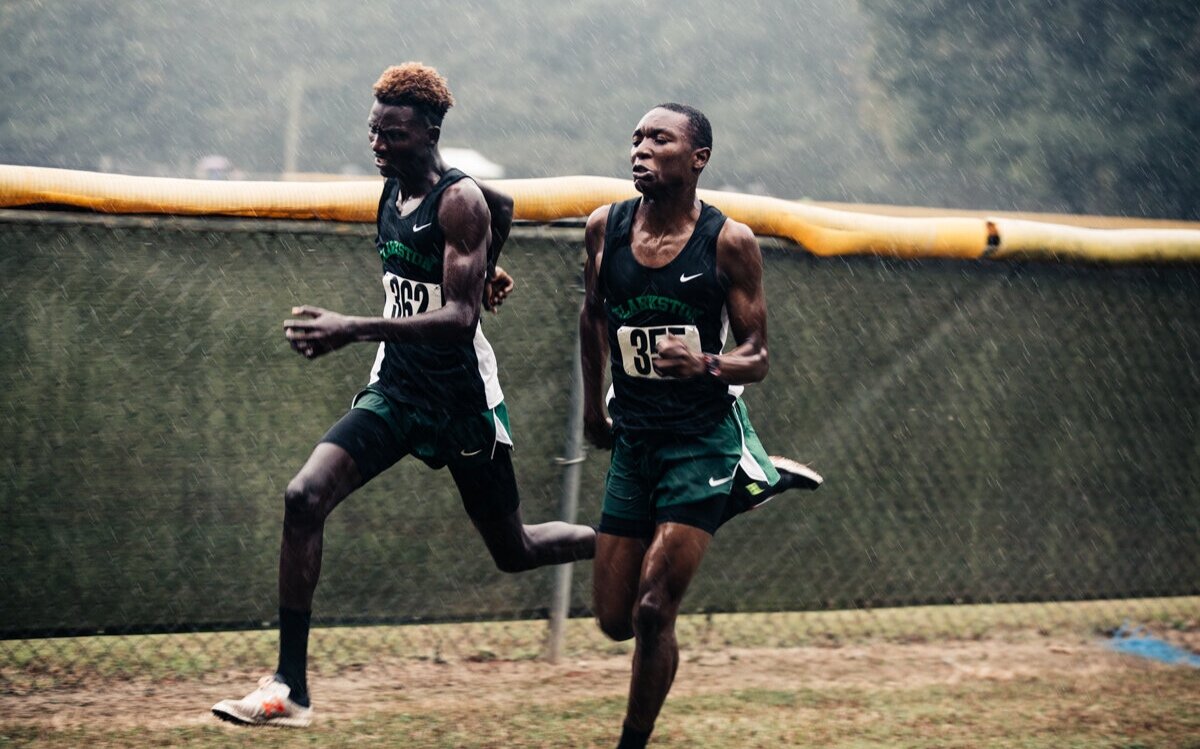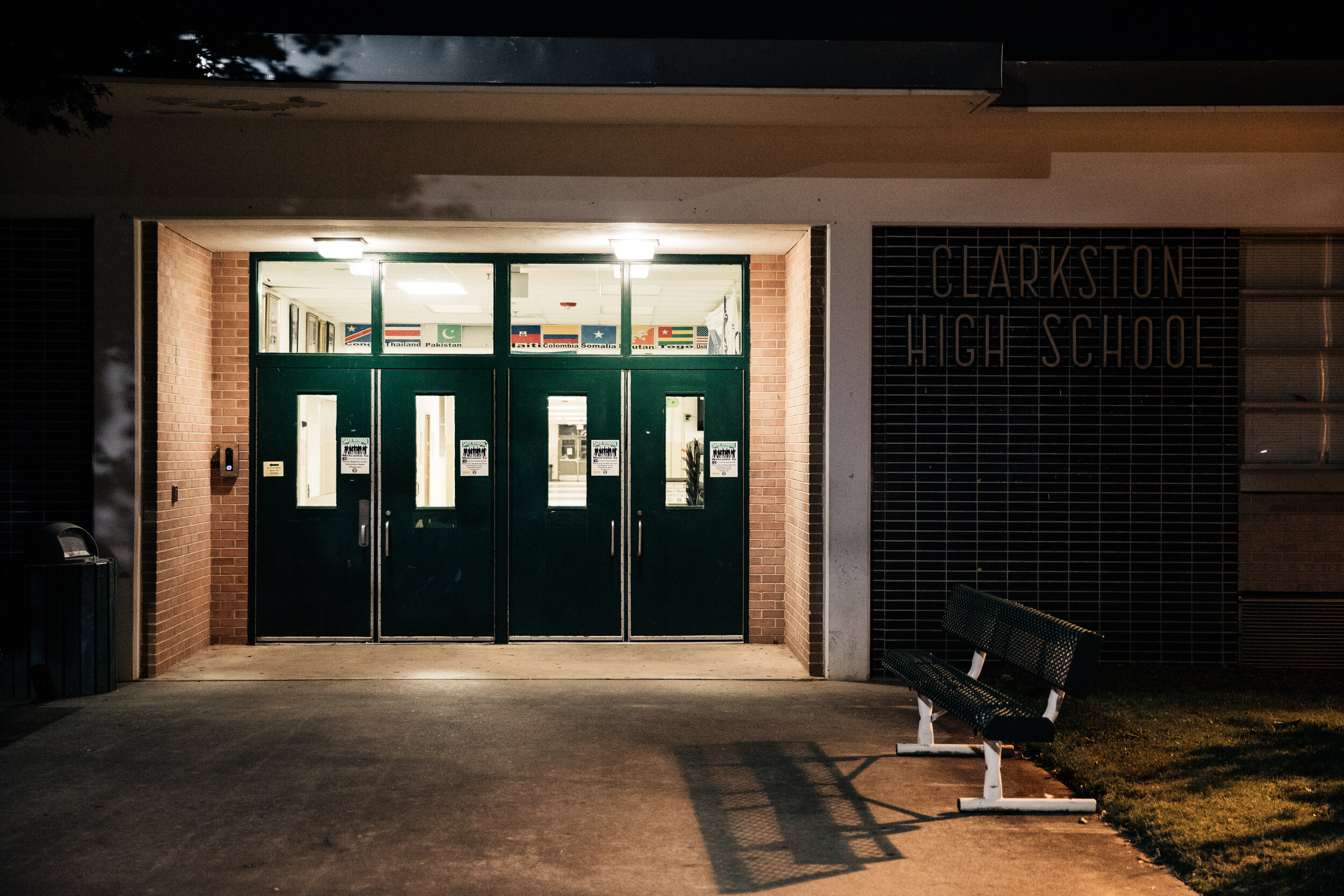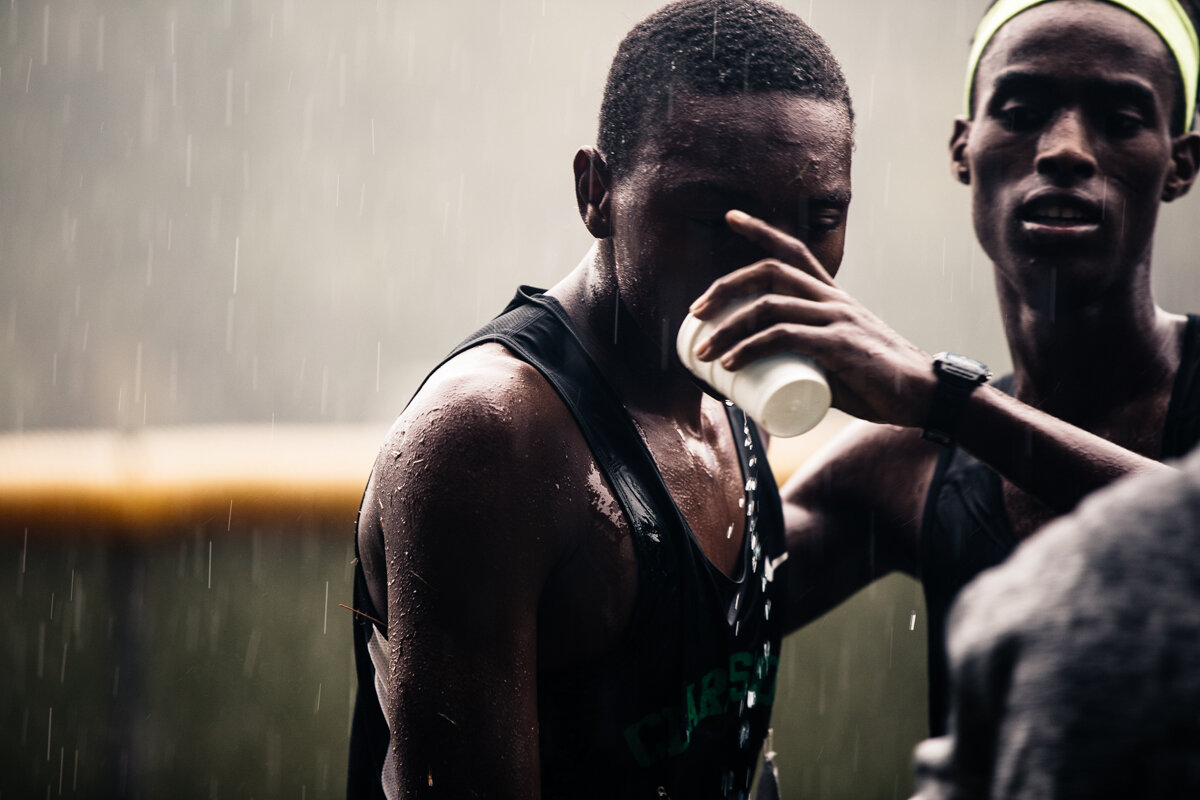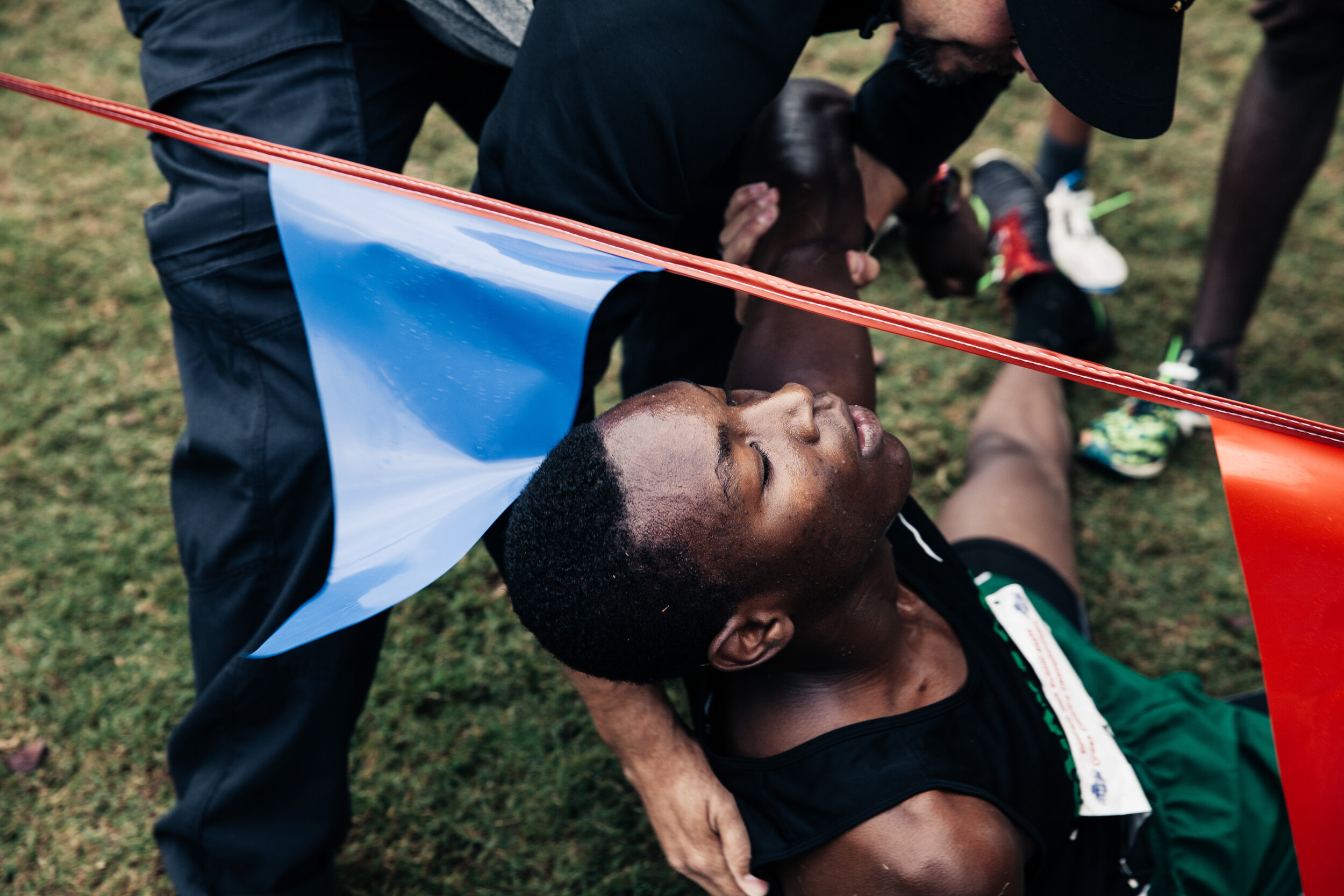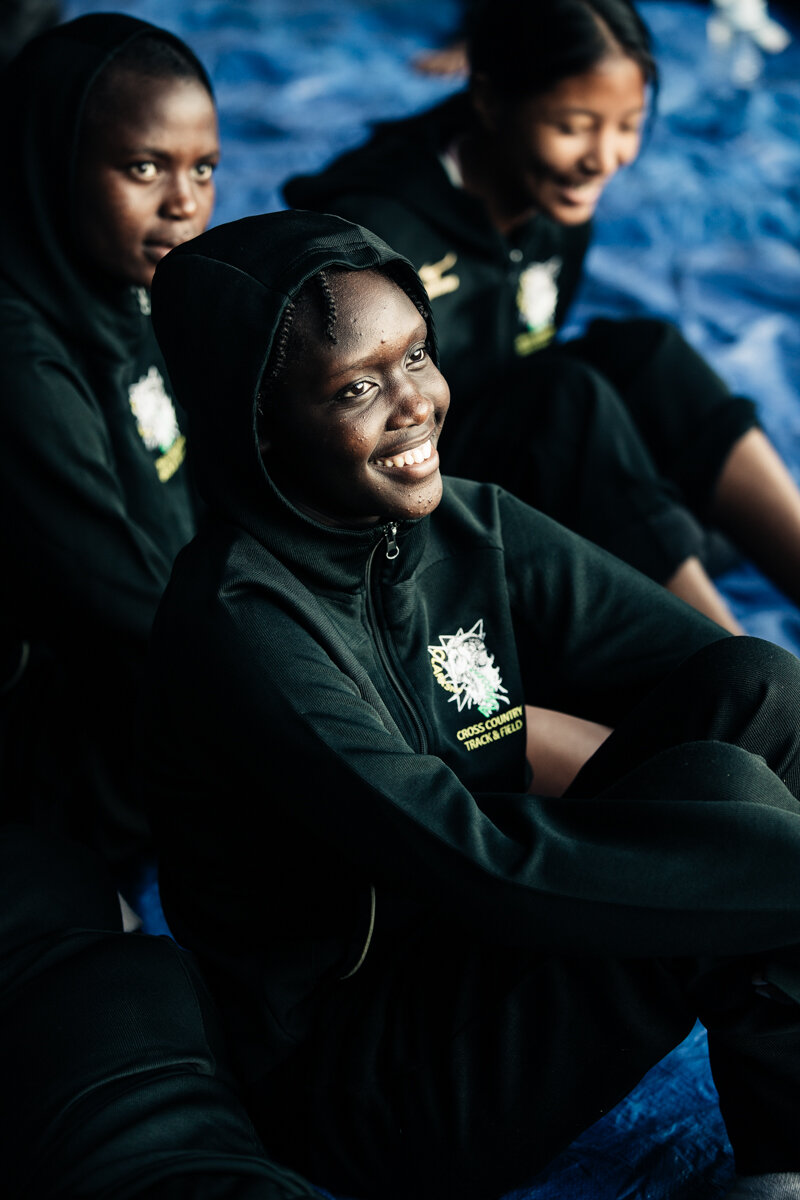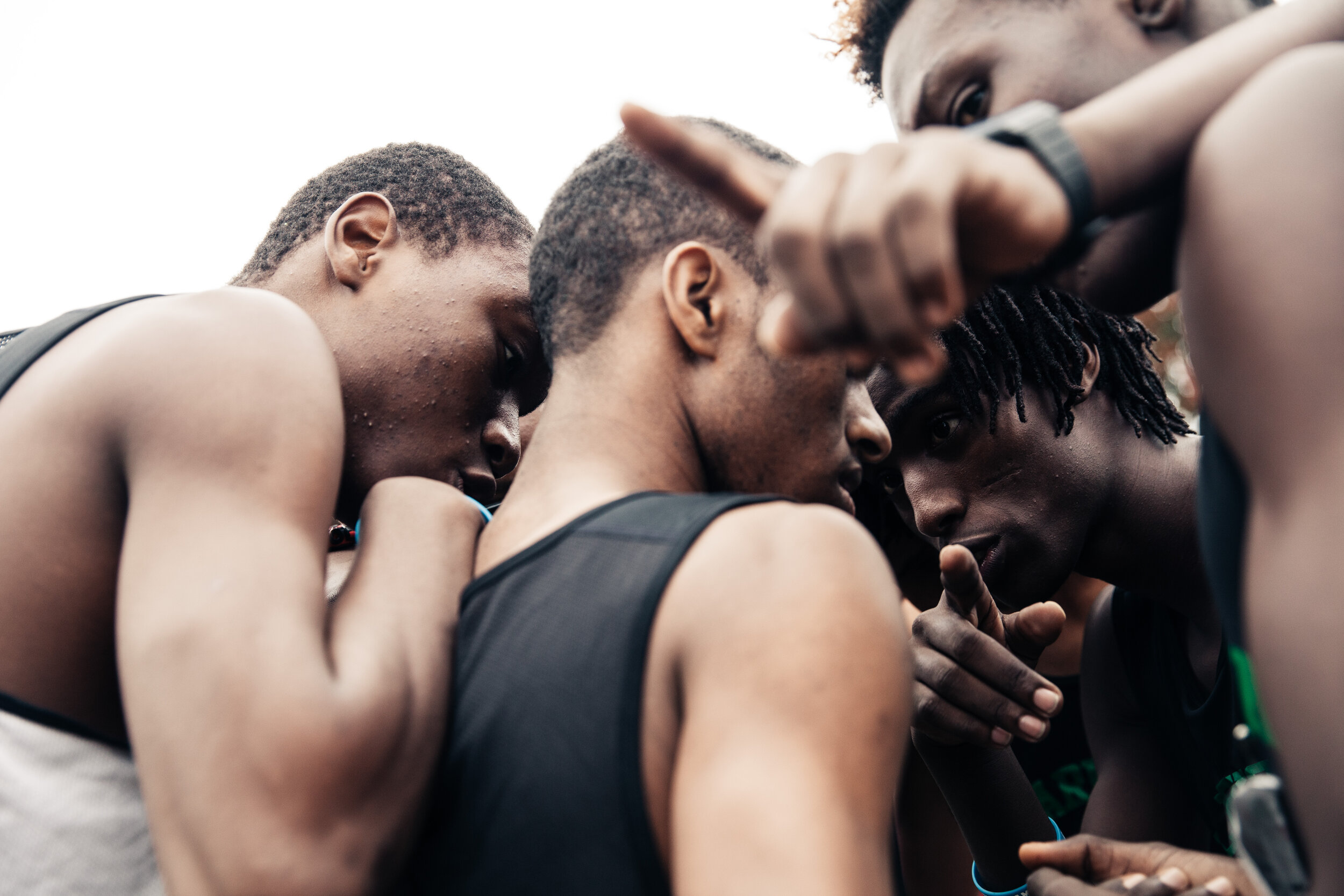The Growl Bros. and writer Charles Bethea take us inside what is likely the South’s most ethnically diverse high-school sports team: the cross-country runners of Georgia’s Clarkston High.
Photographs by Growl | Story by Charles Bethea
Last November, Coach Wesley Etienne of Clarkston High School pulled his runners into a tight huddle before the Georgia state cross-country meet began.
“Let’s show these people we deserve to be here,” he said, referring to the hundreds of mostly white competitors and spectators crowding the hilly, tree-lined, five-kilometer course in Carrollton, Georgia, an hour west of Atlanta. We deserve to be here: It’s a common, even clichéd refrain, heard in high school locker rooms before big games, matches, and meets around the country. But here, among Etienne’s runners, it meant a good deal more.
“When the famous president says this crap about ‘the shitholes,’” Etienne told me moments later — referring to Donald Trump’s 2018 comment about “shithole countries” in Africa, as well as Haiti and El Salvador — “we are that.” Etienne, who is Haitian-American, paused to let his words sink in.
“But we the clean shit, all right?” He smiled a tough smile. A few of his runners laughed tentatively. Like many of Clarkston’s residents, Etienne’s runners are refugees, from countries like the Congo, Ethiopia, Sudan, Eritrea, Cameroon, and Rwanda. “We’re 50 nations deep,” he said of the school. Clarkstonians call their town “the most diverse square mile in America.” It’s been dubbed the South’s Ellis Island by several publications (including The Bitter Southerner). And Etienne’s teams are perennially a collection of its fittest young men and women.
Etienne, who ran track and cross-country in college at Alabama State two decades ago, has taught engineering and coached the Clarkston Angoras cross-country team since 2012. After a tough first season, his boys won consecutive state championships in 2014, 2015 and 2016. In 2017, they managed third with a depleted roster. Last year, underclassmen were asked to step up to the challenge, as many strong seniors had moved on to college.
“This team is very, very relaxed,” Etienne told me, watching them warm up together before the state meet last year. “I won’t lie,” he went on. “I can’t get a read on them.” He added, “I’m rah-rah all day. You either get with me or leave me alone.” He gave a sudden shout as an opposing coach he knew jogged by. When the boys returned, he pulled aside Thaddee Barge, a tall sophomore with broad shoulders and a fixed gaze, who came to America from Cameroon in 2013 with his parents and four sisters.
“Have fun out there,” Etienne told Barge. He repeated the command: “Fun.”
In central Africa, Barge’s family were farmers — corn, mainly, as well as peanuts and potatoes — turned refugees first by war, then by economic hardship. His parents wanted safety and education for their children. Here, they work at a chicken factory and a wood-processing plant. Performing in front of his father for the first time, last year, Barge raced poorly.
“He fell apart,” Coach Etienne told me when the race was over. The team finished eighth. “I think it was his head,” he went on. “Thaddee did something I’ve never seen him do: He started walking. I said, ‘Thaddee, what’s going on?’ He looked lost. Spent. Unresponsive. I thought it might be dehydration, but he’s very emotional. He poured in so much energy.” Afterwards, Barge was, by turns, crying inconsolably and catatonic. His teammates picked him up from the grass near the finish line and more or less carried him over to their tent. Watching, Coach Etienne was moved.
“We’re a family,” he said. “We hold each other up.”
When Barge finally began talking again, he swore he’d do better the following year. He’d learn “how to perform well with a lot of people looking,” he told me. And heading into the state meet this year, he was on track. Barge led the young Clarkston team to first place in regionals, where he was the top finisher, in late October. Around the same time, he watched the world-class Kenyan distance runner, Eliud Kipchoge, run his sub-two-hour marathon—the first in history. Barge excitedly texted the team, on their group thread, “He did it!” Nike had given Kipchoge its most advanced new running shoe, the Vaporfly. Barge also wore Nikes, a much older model, which he’d been able to purchase with the help of team donors.
“That man was flying,” Barge recalled of Kipchoge. “I love watching him run.” Barge’s best mile on a track (4:26) is eight seconds faster than Kipchoge’s record-setting marathon pace (4:34). The main lesson Barge took from Kipchoge, who also began his career as a five-kilometer racer, “smile when it hurts.”
The 2019 state meet took place on a crisp, cloudless Friday in early November. Etienne didn’t take the day’s beauty as a good omen, necessarily.
“Most of our championships came in terrible weather,” he told me, referring to the boys. “Frost, rain, muggy.” But otherwise, things were in place. The girls team, led by sophomore Milak “Miracle” Colette, “were ready to make a name for themselves,” Etienne said, noting that they’d never cracked the top 25. The strip-mall spaghetti from last night’s team dinner seemed to be staying down on both teams. And, since it was a Friday, parents weren’t able to attend — for better or worse. After a prayer and some final words of advice — “See that team,” Coach Etienne said to the boys as they lined-up at the start, “white and blue? That’s Decatur. Stay with them, and we’re good” — they went out hard, as planned, and were in position to attack the front pack around halfway through, when they crested a brutal little bump known as “separation slope.”
“Come on! Come on! Come on!” Etienne yelled, turning his visor around backwards, his heavy keychain slapping against his leg as he ran to the bottom of the hill.
But gradually, they began to fade. The white and blue Decatur jerseys sailed out of sight. Coach Etienne continued to exhort his team from the sidelines, sprinting from one spot to another, even offering a few uncharacteristically expletive-laden motivations. But it was no use. Something was amiss. The pressure of the race? The distraction of the crowds? It was hard to say. Barge, who has received some recruiting interest from college coaches, fell from the top 30 to the top 60 individual finishers, crossing the line about 45 seconds slower than his regional time. Clarkston’s boys finished 18th, while the girls were 24th—their best-ever finish. “They were aiming top 20,” Etienne said of the girls. “Shoot for the moon — what’s that saying? — and if you miss, you’ll still land among the stars.”
After sitting quietly for a while, catching his breath and steadying his mind, Barge put his arm around a few teammates and walked back to the team tent.
“We didn’t get on the bus until we sat down as a team and talked about goals for next year,” he told me later. “We didn’t want to enter the bus with negative thoughts. So we stopped and made a circle. We talked about where we want to see ourselves. We know that we are better.” He went on, “I talked about myself. I told them I did not do good the way I was supposed to do it. So I promised them that I’d step up my game starting today. I’d keep everyone on point.” He added, with a slight grin, “I’ll smile through the pain.”
This story was published in Issue No. 1 of The Bitter Southerner magazine.

